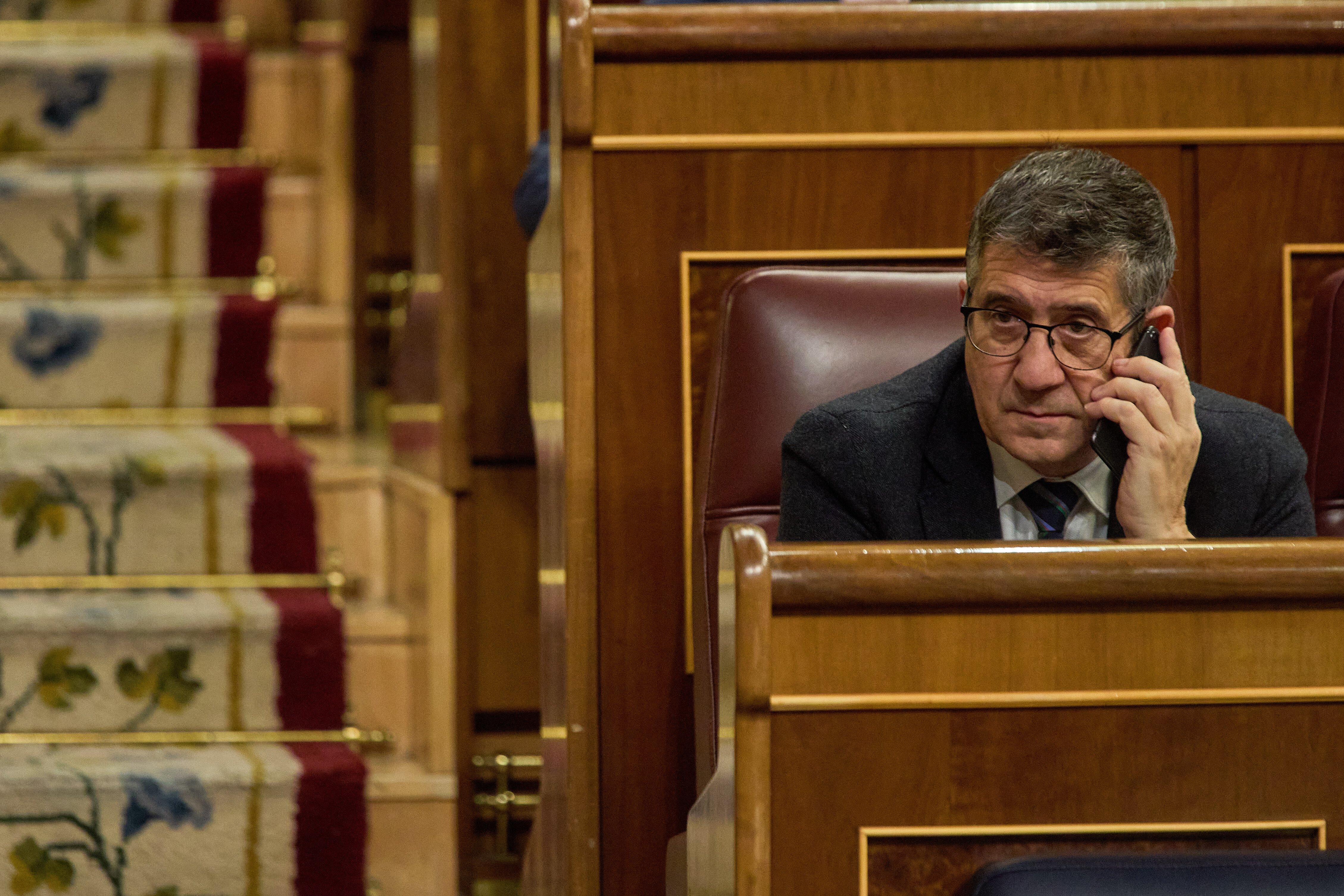With Podemos or without. The senior partner in the Spanish governing coalition, the PSOE, has announced this Monday that it will present to the Congress of Deputies a bill to reform the country's recent approved, and instantly problematic, Sexual Freedom Act - better known as the 'Only yes means yes' law. In this way, they aim to end the controversy surrounding the new law's most serious unintended consequence: the reduction of sentences for rapists. It was the party spokesperson and education minister, Pilar Alegría, who affirmed that the Socialists intend to present this text with the help of their junior partners Unidas Podemos, by reaching an agreement with the alternative left party, but she stressed that, even if an accord with Podemos is impossible, the text to modify the law will still be presented.
The PSOE announcement came moments after the president of the opposition PP, Alberto Núñez Feijóo, announced that he too would support the reform of the 'Only yes means yes' law even if Pedro Sánchez did not reach an agreement with Podemos. Alegría, however, followed the same line as fellow minister Félix Bolaños, and sent a message of reassurance to their government partners about how the law would be amended: "In no case will the article referring to the consent of the woman be altered, because explicit consent is the heart of the law" - it is, indeed, the issue which gave the law its informal name.
The Socialist spokesperson also wanted to make it very clear that the amendments that the PSOE wants to make to this law are in the direction of increasing prison sentences for rapists. This is one of the aspects that, depending on how it is approached, could generate more confrontation with Unidas Podemos. The alternative left party headed by Ione Belarra has reiterated that the true objective of the Sexual Freedom legislation is not to focus on punishment or hardening the sentences in the Penal Code, but on the protection of the victim and the provision of resources to the public administration to combat sexism and sexual assaults.
"We want to present a legal proposal as soon as possible and with a consensus between the two governing parties", said Alegría. In addition, she insisted that it must be a "consensus document" that also has the support of the other parliamentary allies that tend to row in the same direction as the Pedro Sánchez executive. Likewise, and to avoid giving the idea that the PSOE wants to distance itself from Podemos, she affirmed that all the concepts that could be introduced in this bill are already being worked on within the cabinet. However, the education minister made it very clear that the reform is essential in the face of the "unwanted effects" which the equality ministry's major legislative project has struggled with since it became law last autumn.
It should also be noted that, in fact, Irene Montero, Podemos minister who leads the equality ministry which produced the legislation, has already adjusted the tone she uses in protesting about the consequences of this new law. This weekend she acknowledged that only some judges had interpreted the text in a way that could benefit rapists, but that it was not a widespread phenomenon throughout the Spanish justice system. Gone are those statements in which she accused Spanish judges of being sexist and assured that the law would never be touched. A similiar approach was used by the Podemos spokesperson, Isa Serra, this Monday, when she spoke, asking for the heart of the law to be protected.

